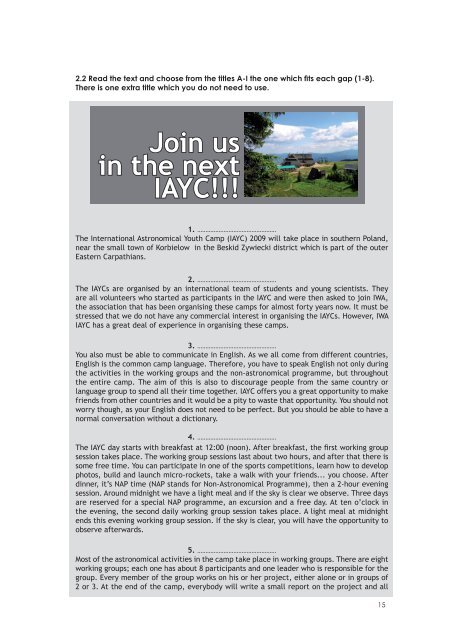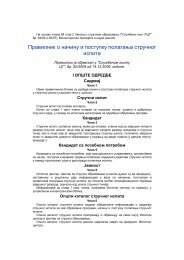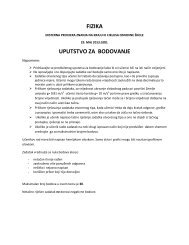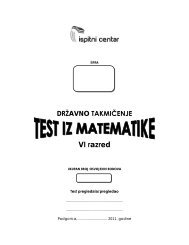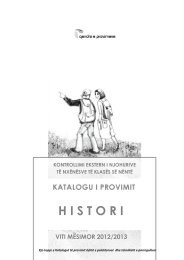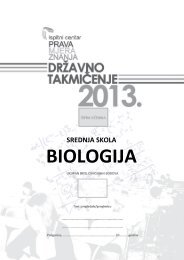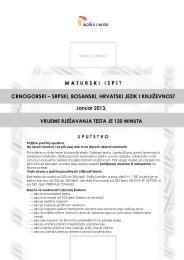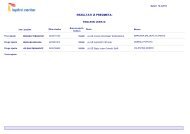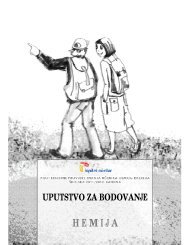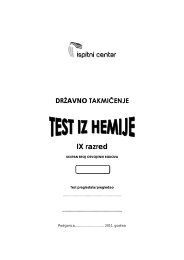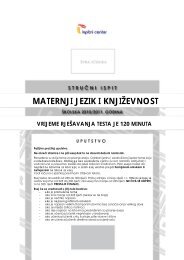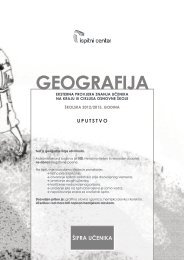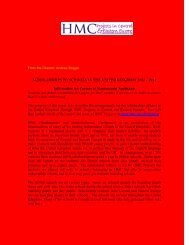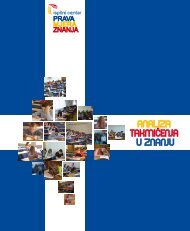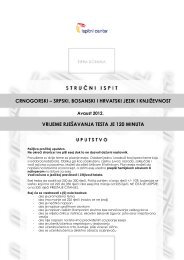Create successful ePaper yourself
Turn your PDF publications into a flip-book with our unique Google optimized e-Paper software.
2.2 Read the text and choose from the titles A-I the one which fits each gap (1-8).There is one extra title which you do not need to use.Join usin the nextIAYC!!!1. ................................................The International Astronomical Youth Camp (IAYC) 2009 will take place in southern Poland,near the small town of Korbielow in the Beskid Zywiecki district which is part of the outerEastern Carpathians.2. ................................................The IAYCs are organised by an international team of students and young scientists. Theyare all volunteers who started as participants in the IAYC and were then asked to join IWA,the association that has been organising these camps for almost forty years now. It must bestressed that we do not have any commercial interest in organising the IAYCs. However, IWAIAYC has a great deal of experience in organising these camps.3. ................................................You also must be able to communicate in English. As we all come from different countries,English is the common camp language. Therefore, you have to speak English not only duringthe activities in the working groups and the non-astronomical programme, but throughoutthe entire camp. The aim of this is also to discourage people from the same country orlanguage group to spend all their time together. IAYC offers you a great opportunity to makefriends from other countries and it would be a pity to waste that opportunity. You should notworry though, as your English does not need to be perfect. But you should be able to have anormal conversation without a dictionary.4. ................................................The IAYC day starts with breakfast at 12:00 (noon). After breakfast, the first working groupsession takes place. The working group sessions last about two hours, and after that there issome free time. You can participate in one of the sports competitions, learn how to developphotos, build and launch micro-rockets, take a walk with your friends... you choose. Afterdinner, it’s NAP time (NAP stands for Non-Astronomical Programme), then a 2-hour eveningsession. Around midnight we have a light meal and if the sky is clear we observe. Three daysare reserved for a special NAP programme, an excursion and a free day. At ten o’clock inthe evening, the second daily working group session takes place. A light meal at midnightends this evening working group session. If the sky is clear, you will have the opportunity toobserve afterwards.5. ................................................Most of the astronomical activities in the camp take place in working groups. There are eightworking groups; each one has about 8 participants and one leader who is responsible for thegroup. Every member of the group works on his or her project, either alone or in groups of2 or 3. At the end of the camp, everybody will write a small report on the project and all15


